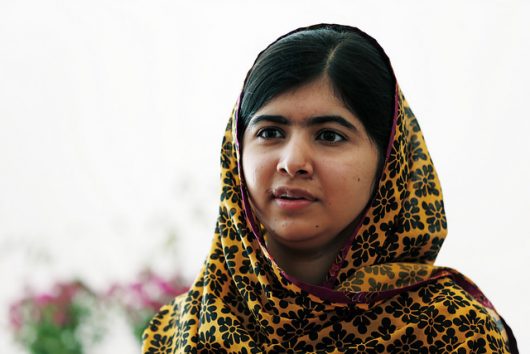12 Facts About the World’s Champion: Malala Yousafzai

Malala Yousafzai, the world’s youngest and most powerful champion for girls’ education, may soon be attending one of the most prestigious schools in the world: the University of Oxford. Back in March of this year, Yousafzai announced that she had received a conditional offer (based on her A Level grades) from Oxford and that she plans to attend the University. She plans to study philosophy, politics and economics (PPE), and work on her organization, the Malala Fund. To commemorate this outstanding individual, here are 12 facts about her life, her achievements and her organization.
12 Facts About Malala Yousafzai
- At the young age of 12, when her hometown of Swat was held by the Taliban in 2009, Yousafzai wrote for a BBC blog critiquing the hardline Islamic movement under a pseudonym, even while she and her father were receiving multiple death threats.
- Yousafzai was the first recipient of Pakistan’s National Youth Peace Prize.
- Archbishop Desmond Tutu, a world-renowned social rights activist and retired Anglican bishop, nominated Malala Yousafzai for the International Children’s Peace Prize in 2011.
- Yousafzai was an international figure by now, and Taliban leaders voted among themselves to kill her. On October 9, 2012, Malala’s school bus was attacked by a gunman. He broke through the door and demanded to know where Yousafzai was. When some of the girls looked her way, she was shot in the head.
- Miraculously, the 15-year-old survived the attack. She was flown to Birmingham, U.K., for treatment. Her attack was condemned worldwide, and, after protests in Pakistan, more than 2 million people signed a right to education petition. The petition became a bill later ratified by the National Assembly, making it Pakistan’s first Right To Free and Compulsory Education Bill.
- In 2013, Yousafzai and her father co-founded the Malala Fund, an organization that advocates at all political levels to ensure all girls complete 12 years of school.
- The Malala Fund currently has programs in Pakistan, Kenya, Nigeria and in various countries for Syrian refugees.
- In Pakistan, a country with the second-largest number of girls not in school, the program focuses on getting more girls in school, building schools, providing materials (books, uniforms, etc.) and grants for secondary schooling.
- In Kenya, a country quickly evolving into its digital era, the Malala Fund works to ensure girls can take advantage of the technology trend.
- In Nigeria, the organization helps girls who have escaped from Boko Haram get an education.
- For Syrian refugees in Jordan and Lebanon, the organization opens new schools and funds educational programs in safe refugee camps.
- In October 2014, Malala Yousafzai won the Nobel Peace Prize. At age 17, she is the award’s youngest recipient.
<
As Yousafzai continues to push for girls’ education around the globe, we should follow in her footsteps and do what we can do alleviate global poverty and ensure global education.
– James Hardison
Photo: Flickr
